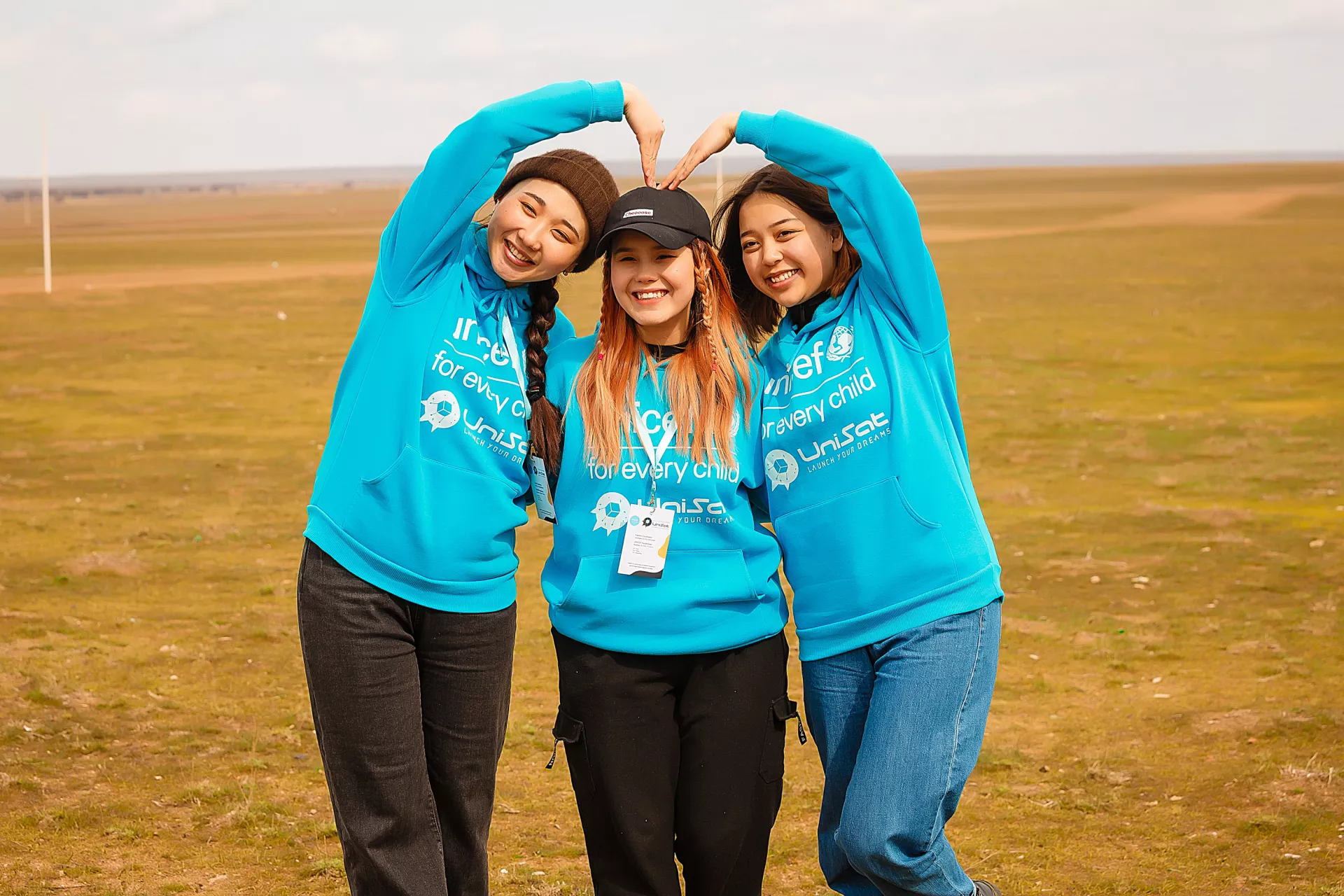“There is only one chance in a million like that,” says Zhaniya, age 16. She is talking about a recent opportunity she had to launch a satellite into the stratosphere – something she couldn’t have imagined doing just a few months earlier. Zhaniya was one of the lucky girls who got to take part in UniSat, a UNICEF programme to promote science, technology, engineering and mathematics (STEM) skills to girls in Kazakhstan, Kyrgyzstan and Uzbekistan.
The UniSat programme was launched in 2020, but only 20 girls were able to take part at first. More recently, thanks to supporters of the global Gender Equality Thematic Fund, UNICEF has been able to greatly expand the UniSat programme, giving more girls like Zhaniya the chance to build their interest in STEM, space exploration and aerospace engineering. Thanks to the investment from Gender Equality Thematic Funds, the second phase of UniSat was able to reach over 150 girls. These girls created seven nanosatellites over 10 days, mastering the construction, design, programming, and assembly of these spacecraft. Three of the satellites were launched into the stratosphere to collect data on air pollution.
“I am so glad to have this amazing opportunity of learning how to build nanosatellites,” Zhaniya reflects. “I believe nanosatellites are the most effective, affordable and easy way to solve many problems of our world. I hope that such knowledge will help me launch my nanotechnology project in the future.”
While this programme has clearly had a huge influence on Zhaniya, it also has a broader benefit, as part of UNICEF’s work to strengthen systems for gender equality. Specifically, UNICEF is working to shift gendered attitudes that persist around female participation in STEM – especially in Central Asia, where there is a significant gap between boys and girls in the areas of computer literacy, STEM education and technical careers. Therefore, these satellite launches are powerfully symbolic – representing the boundless potential of the girls and women of Central Asia.


